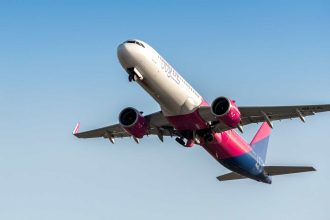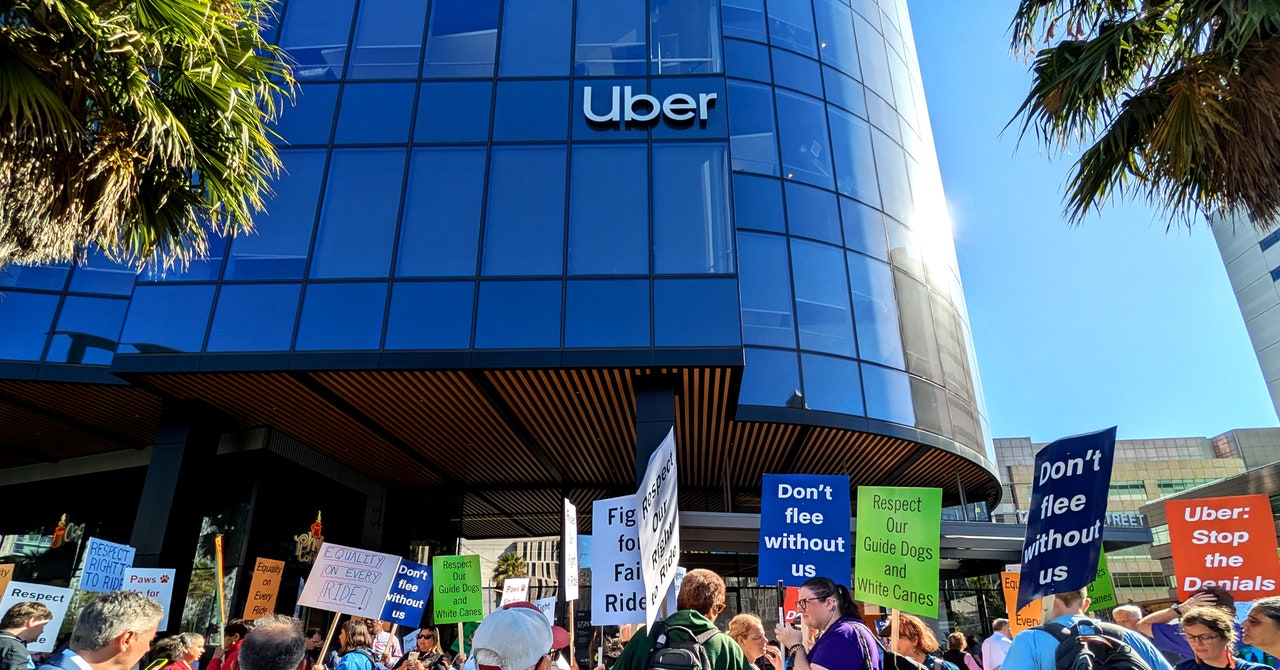Last summer, when Krystal White was visiting Houston for a National Federation of the Blind convention, she claims she had to hide her guide dog named Gage in order to get an Uber from the airport.
This is a frequent problem, she explains.“I’ve had them drive right past me, and I’ve had neighbors go, ‘I think that was your Uber driver,’” White says. “And I’m like, ‘oh great.’ So I’ve missed appointments, I’ve missed my daughter’s play at school.
“It makes you feel isolated—like it’s all your fault, you’re blind. And you can’t get anywhere when you’re trying so hard to do so.”
White, from Boise in Idaho, was among the protesters who gathered on October 15 outside the San Francisco headquarters of Uber and Lyft to demand that the companies take major steps to stop discrimination against people with disabilities on their platforms—particularly against visually impaired people who use guide dogs or white canes.
Many had personal experiences in which they say Uber or Lyft drivers rejected them as soon as they pulled up. Juanita Herrera, from Southern California, was at the protest with her 4-year-old daughter. She says when she was pregnant years ago, she got off work late and didn’t want to take public transportation, so she called an Uber.
“The driver showed up, saw my dog, and started getting aggressive. He was like, ‘no dogs.’ And I’m like, ‘but it’s a service animal.’ He just kept saying ‘no dogs,’” she says. “I’m visibly pregnant at the time, right? He just kind of left me stranded. He then drove off. He wouldn’t cancel the trip until 15 minutes later.”
On another occasion in 2021, a Lyft driver refused to stop while Herrera’s young daughter was in a car seat, because of her guide dog, Jaden. The driver said she didn’t take pets. Herrera says the driver claimed no knowledge of Lyft’s policy on guide dogs and that when she still refused to take them, Herrera told the driver she would report the incident. The driver got very angry, accused Herrera of trying to get her fired, and then drove off, she says. Herrera says she filed a report and nothing came of it.
At the protest, people said that the companies need to institute a “zero-tolerance policy” for discriminatory drivers who turn away passengers with visual impairments. They also said that ride-hailing companies need to better educate their drivers on how to accommodate people with visual impairments. The protest was organized by the National Federation of the Blind and took place on White Cane Awareness Day, meant to spotlight the needs of people with visual impairments.
Read the full article here





